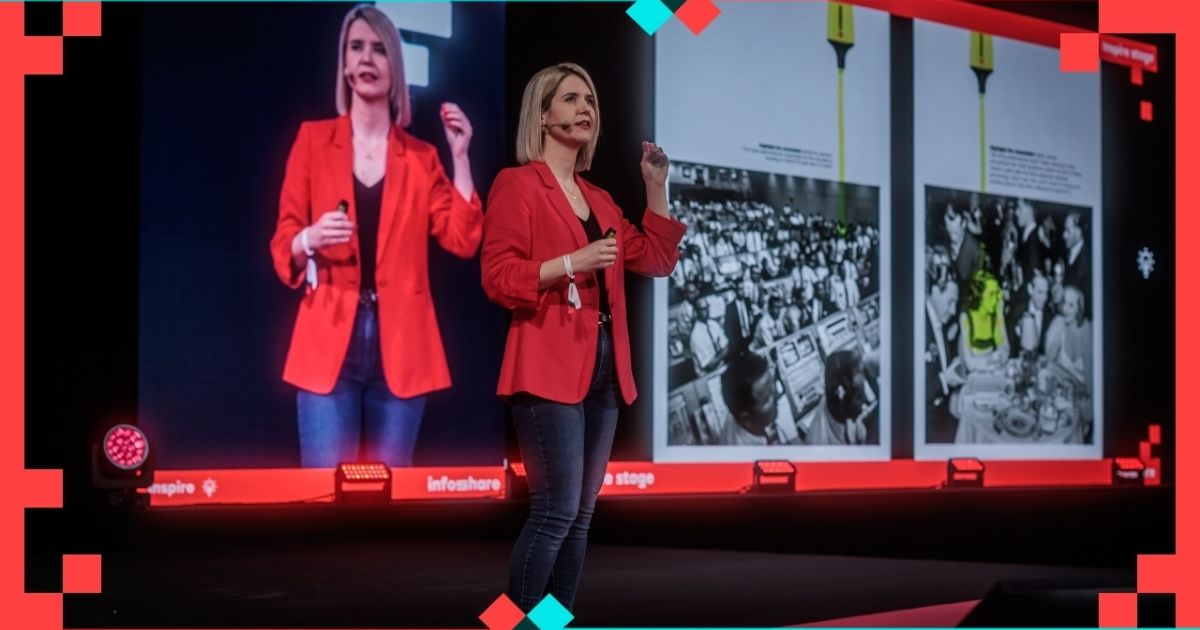VIEW SPEECH SUMMARY
- Homo sapiens survived while other hominins went extinct due to our ability to cooperate and show empathy.
- Success should not be about competition but about working together and caring for each other.
- Example: The Zuni tribe’s race showed cooperation triumphs over competition.
Actionable item: Encourage collaboration over competition in teams and organizations.
---
Importance of Social Connections and Inclusion
- Two types of social ties: strong ties (close relationships) and weak ties (acquaintances with diverse perspectives).
- Weak ties provide novel information and promote innovation and opportunities.
- Diversity in teams only benefits when followed by inclusion, meaning everyone feels equally welcomed and valued.
- The "Cyberball Experiment" showed that social exclusion causes pain similar to physical pain, highlighting why inclusion matters.
Actionable item: Foster inclusive environments where everyone is included and feels psychologically safe.
---
Psychological Safety in Teams
- Study by Amy Edmondson found teams with inclusive and safe atmospheres report errors and learn from them, unlike formal teams that hide mistakes.
- Google’s research on 180 teams confirmed that psychological safety is the top factor for high performing teams.
- Psychological safety means people feel safe to be themselves, to speak up, share ideas, or admit mistakes without fear of punishment.
Actionable item: Create psychologically safe workplaces where mistakes can be openly discussed and learned from.
---
Embracing Failure and Learning From It
- Failure is part of success, and many major innovations (Viagra, Post-its, Slack) came from unexpected results.
- Encouraging acceptance of failure leads to creativity and innovation.
Actionable item: Normalize failure and treat it as a valuable learning opportunity.
---
Impact of Expectations and Bias (Self-Fulfilling Prophecy)
- Study showed teachers’ expectations influenced students’ IQ growth even when names were random, demonstrating self-fulfilling prophecy.
- Expectations affect performance positively or negatively in education and workplaces.
- Biases and stereotypes are often unconscious but influence opportunities (e.g., lower callbacks for job applicants with foreign or female names).
Actionable item: Be aware of and actively counteract implicit biases; support all team members with positive expectations.
---
Paying Attention & Mental Health Awareness
- The importance of paying genuine attention to coworkers rather than jumping to conclusions (e.g., attributing laziness instead of understanding personal struggles).
- Mental health issues are common and affect everyone, regardless of status.
- Raising awareness of mental health and encouraging asking for help is crucial.
- Poland has a high suicide rate and professional burnout; call to change stigmas like “boys don’t cry”.
Actionable items:
- Promote mental health awareness and compassion in the workplace.
- Encourage open conversations and offer support.
- Use simple tools like asking “How can I help you?” to better understand individuals’ needs.
---
Critique of Work Culture Focused on Continuous Success
- Modern culture, especially on platforms like LinkedIn, pushes constant productivity and success, often at personal cost.
- Reminder: Life is more than work; long hours won’t be remembered by loved ones.
- Being kind—to others, oneself, and even technology—is what sustains us.
Actionable item: Foster a more balanced work culture that values wellbeing and kindness over relentless productivity.
---
Final Key Messages
- Cooperation and empathy gave humans an evolutionary edge; continue this legacy in modern organizations.
- Inclusion and psychological safety improve individual relief and organizational success.
- Awareness and action against biases and mental health stigma are essential.
- Failure is a plot twist, not the end—embrace it.
- Kindness is a fundamental survival skill in an increasingly mechanized world.
A Simple Guide to Surviving the Robots (and Thriving at Work): The One Human Trait That Changes Everything
16:20 - 16:40, 27th of May (Tuesday) 2025 / INSPIRE STAGE
As humanity we’ve faced extinction, predators, and ice ages — and somehow made it through. Now, as we stand at the edge of the AI era, the question isn’t just what machines can do, but what makes us worth keeping in the loop. This talk explores the one human trait that changed everything — the trait that helped us dominate the planet, build civilizations, and still shapes how we lead, work, and connect today. It’s not strength. It’s not intelligence. It can’t be copied by AI. And it might just be the key to our growth, resilience and survival — not only on a global scale, but also in everyday life.
Join me for a very exciting talk on how humanity outsmarted the mammoths - and might outlast the machines.



